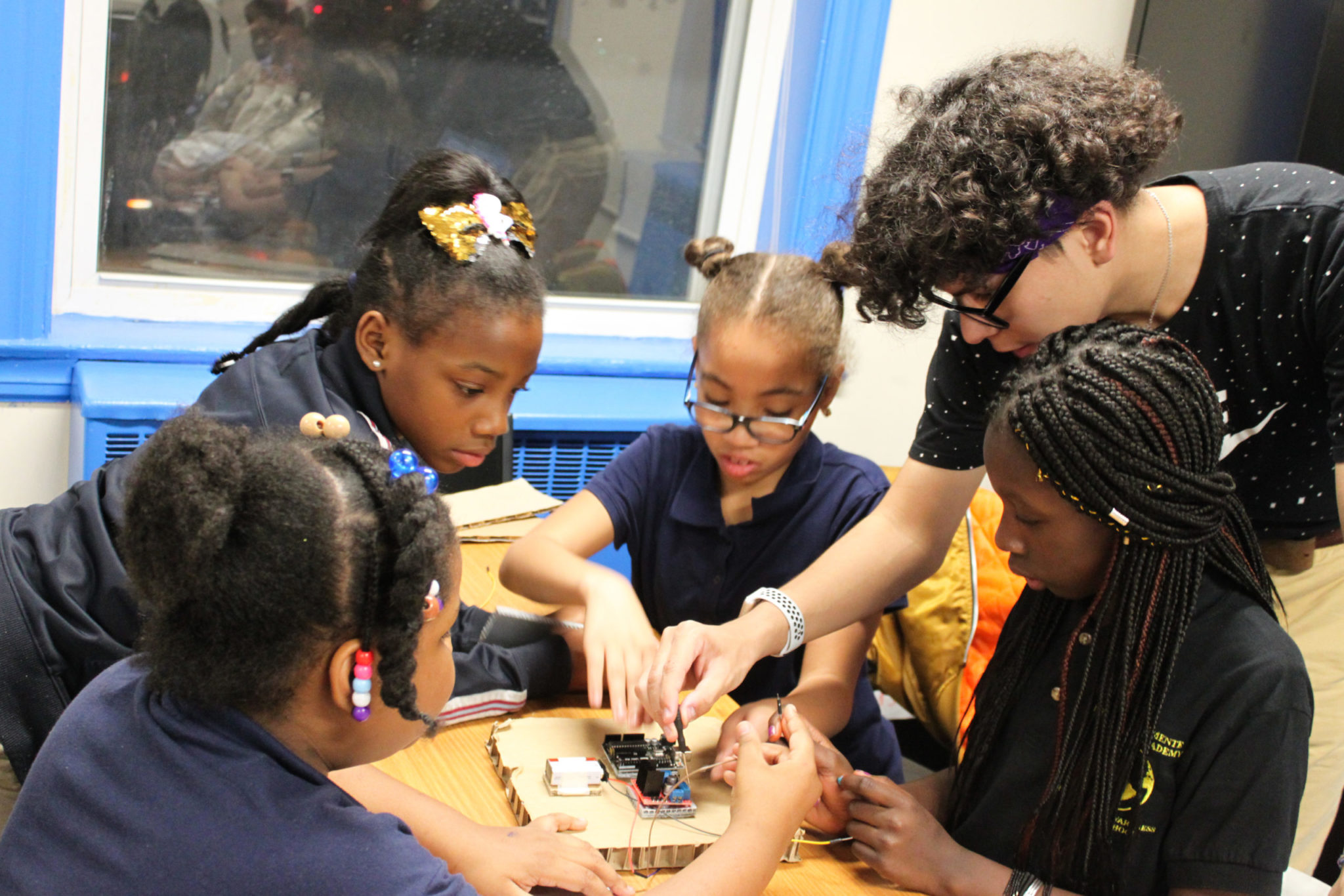
Hannah Lee
When strategizing how to provide opportunities to children in New Haven’s most impoverished neighborhoods, one nonprofit decided to increase access to technology — specifically, teaching coding.
Leadership, Education and Athletics in Partnership (LEAP), a New Haven nonprofit working with primarily black and Latinx communities, is opening a free coding club next Saturday to a maximum of 20 students from ages 11 to 15. The weekly sessions will take place at LEAP’s Computer Learning Center, located at LEAP’s headquarters at 31 Jefferson St.
Hannah Lee, director at LEAP’s Computer Learning Center, explained that the program will teach participants not only how to code, but also to impart an understanding of how coding can be applied in a variety of jobs in computing and STEM fields. It is part of an effort to increase access to technology and computer science, in addition to the classes already offered in LEAP’s after-school and summer programming.
“We want to demystify the ideas of what a job in computer science looks like, and connect them with mentors and careers that they might not otherwise know about,” Lee said. “We also hope they are able to better understand the ways in which computer science affects the world around them — so that the next time they visit Stop and Shop, they know how the robot roaming the aisles works the way it does!”
Stop and Shop’s robot, dubbed “Marty” by the supermarket chain, “uses image capturing technology to report spills, debris and other potential hazards to store employees,” according to the Huffington Post. It is one of many local uses of technology that Lee says signifies a “growing need for technology and computing skills in the workforce”.
Lee hopes that equipping young people with the skills needed to create new technology will benefit their communities and those beyond it. This may open up new fields of work or study that participants may not have considered before.
“Learning how to code is all about learning how to solve a problem and persevere until you attain a solution that works,” Lee said. “Learning to be a strong problem solver doesn’t just benefit someone who decides to work in computing. It is something that applies to all aspects of life.”
Some of the projects students will work on in the coding club include building and programming a robot, creating their own game and making an app. Lee explained that LEAP had success with similar projects in the past because instructors incorporate things that participants are already interested in — video games and apps — into learning about code.
Many of these projects will be conducted through mBlock, a block-based coding software. It allows students to not only write their own block code but also see what it would look like in a programming language like Python or C++. They will also use Thunkable, a free block-based app design website, where they can create, test and share apps on any device once completed. Lee pointed to the gratification that students feel with projects that have tangible product results as one reason for these programs’ success.
The program will be taught by LEAP’s staff and student volunteers. Tranece Streater, a 16-year-old student at the Cooperative Arts and Humanities High School, is a junior counselor at LEAP who will be an instructor at the coding club.
Streater first got involved with LEAP when she was 13 during the nonprofit’s Leaders in Training program. LIT teaches teenagers leadership skills with academic support, community service, team building, job exploration and more. She decided to volunteer at the coding club because it would give her an opportunity to “dig deeper into different kids’ interests” and go beyond her normal tasks as a junior counselor.
“I hope the children that come to these programs will be able to use the skills that we taught them in order to be able to solve problems logically,” Streater told the News. “It doesn’t matter what career you will pursue for your future, simply learning how to build steps can integrate into how you perceive certain problems you come across in life.”
Jordan Lue, LEAP’s counselor development intern, will be working alongside Streater as an instructor. Lue, a master’s candidate in industrial and organizational psychology at the University of New Haven, joined the nonprofit last September because he connected with its history and mission. He believes that his interest in coding and experience studying software development makes the coding club a great opportunity.
Lue said he seeks to learn about each student’s individual interests and relate projects to them. He believes that if you are interested in something, “you’re more likely to work through the expected obstacles down the road.”
“Getting the kids to understand the ‘boring,’ foundational aspects of coding is a difficulty sometimes,” said Lue. “One way we overcome these issues is by showing the kids the final product before we begin building it from the ground up. For example, when we work with the robots, we let them play around with a completed project before they begin coding one. This usually gets them engaged knowing they’ll be building something that functions the same.”
Lue hopes that students will walk away from the program with greater knowledge of “the limitless opportunities” in technology because that is something he wishes he understood earlier in life.
The coding club sessions will take place every Saturday from 10 a.m. to 12 p.m.
Natalie Kainz | natalie.kainz@yale.edu







